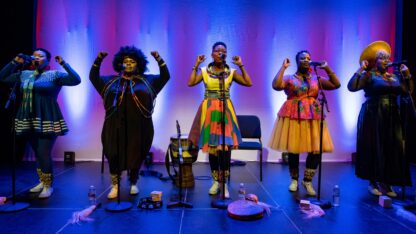Intersectionality, a term first coined by scholar Kimberlé Crenshaw in the mid-1980s, considers how identity influences how people in society are seen through the perspective of race, class, gender and location.
At Georgia State University, a funding grant provided by The Andrew W. Mellon Foundation will support a three-and-a-half-year project towards intersectional studies, which will include a focus on symposia, workshops, guest lectures, roundtable discussions and the creation of a podcast focused on internationality in the American South.
On this edition of “Closer Look,” Georgia State University associate professor of Africana studies Dr. Lakeyta Bonnette-Bailey discusses the reason for exploring the depths of Southern identity. On Tuesday, Bonnette-Bailey will host a conversation featuring author Dr. Joan Morgan on the future of the South through the view of intersectionality and “hip-hop feminism.”
“A lot of times when we think about intersectionality … one aspect of our identity is what it’s like to be a Southerner. There hasn’t been this emphasis to look specifically at the South and the fact that regionalism plays in our identity as well,” said Bonnette-Bailey. “We’re looking at women; we’re looking at black women, we’re looking at indigenous populations … and the various ways in which their identities have created a certain experience for them.”
The project also explores how the popularity and growth of music produced in the South, specifically hip-hop, can contribute towards positive and negative perspectives on race, identity and feminism.








